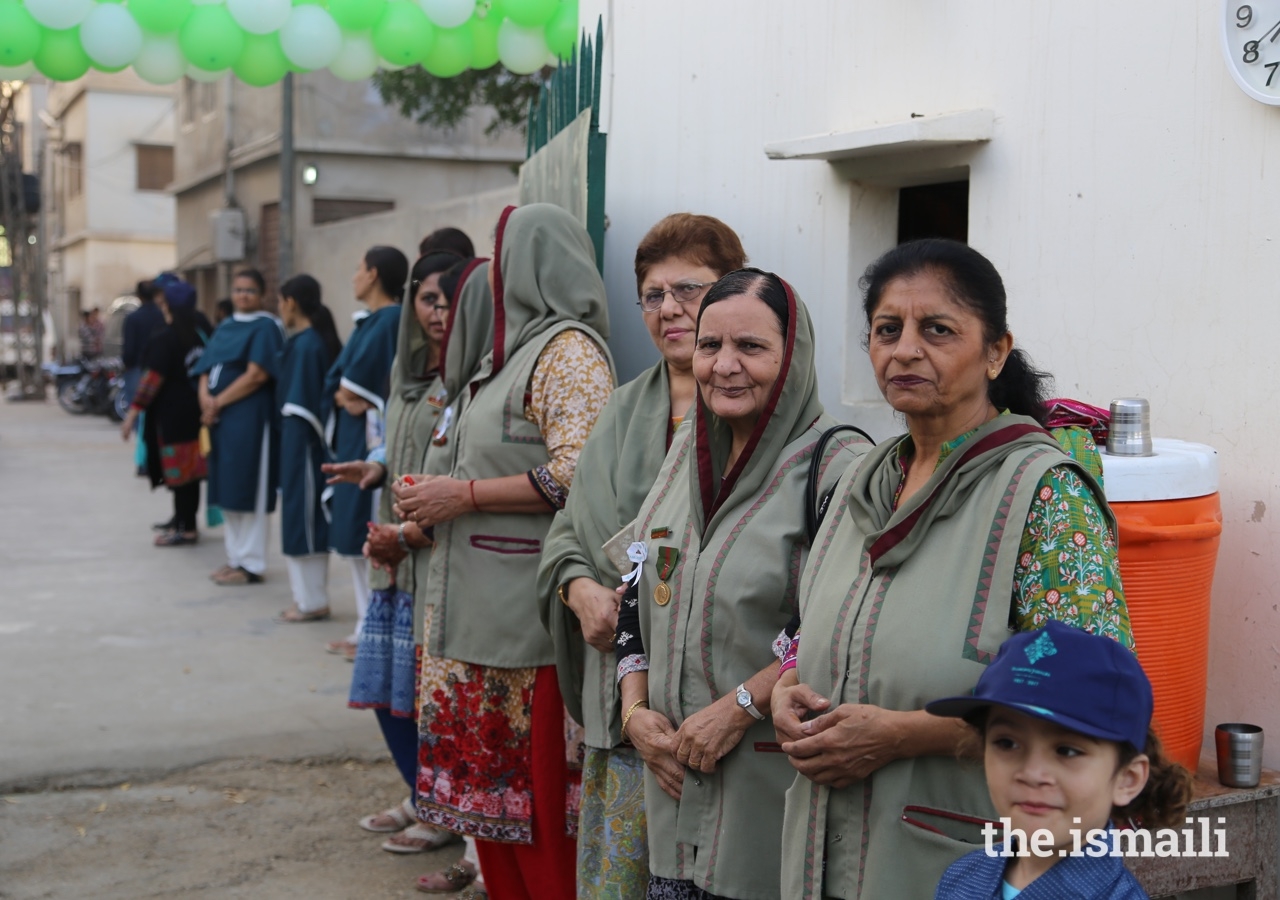Today, individuals are spending a large portion of their lives in old age, having retired from work and dealing with declining health and stamina. As longevity continues to increase, the proportion of the elderly population will also increase. It is important that societies respond to this social and demographic shift, and develop initiatives and systems to care for the aged.
Improving quality of life for the elderly was one of the goals of the Golden Jubilee announced by Mawlana Hazar Imam in 2007. While delivering the Jodidi Lecture at Harvard University in 2015, Hazar Imam said, “People live longer, but they often find that they have outlived their resources. The developing world is now facing a major challenge: how does it care for the elderly? Even in more developed societies, social changes have eroded some of the domestic support that once eased the burdens of the aging. How, we must all ask, will we manage the new challenges of longevity?”
Today’s elderly are members of the silent and the baby boomer generations. Most of them grew up in joint families where the aged were taken care of by the younger generation. This social dynamic, which ensured support and companionship for those in old age, has weakened with the rise of the nuclear family. Due to a number of factors, today’s younger generations, primarily millennials and Generation Z, tend to have less interaction with their grandparents and other elderly members of their family than the generations that came before. In addition, they are likely to live on their own soon after reaching adulthood. Many often travel to new cities or countries in pursuit of career goals, education, and other passions.
As a result of these social changes, a significant number of elderly live away from their families which can often lead to loneliness and a lack of engagement with society. This has become one of the most serious problems affecting the aged, which negatively impacts both their physical and mental health. Lonely senior citizens are at a greater risk of dementia, depression, heart disease, cognitive decline, and numerous other health issues.
Intergenerational interaction is being recognised worldwide as an effective way to improve the lives of the aged. By engaging the elderly and demonstrating their value to society, these interactions bring them happiness, provide a sense of purpose, and help them feel positive about their role in the world. Research has indicated that interactions with the youth give the elderly emotional satisfaction and also have a positive impact on their physical health and cognitive faculties.
Simultaneously, those who have aged and possess valuable life experience can pass on their wisdom to those who are young. This gives youth a broader perspective on life, one which cannot be gained from people their own age.
In Pakistan, programmes, awareness sessions, and excursions are regularly planned at the local and Jamatkhana levels to enable seniors to keep pace with new developments in society, stay engaged, and have new experiences. Sporting events organised by AKYSB such as Pakistan’s Diamond Jubilee Sports Festival, JOSH Games, and Special Olympics often include sports and special segments for the elderly to keep them involved and healthy.
The Aga Khan Youth and Sports Board and the Aga Khan Trust for Culture recently organised the Assemble Youth Camp in Lahore to promote awareness about career paths, educational ventures, a healthy lifestyle, and various social and environmental issues. Recognising the importance of intergenerational bonding, the camp also included a special session with 26 senior citizens that involved discussions, role playing games, and other activities to bridge the gap between the youth and the elderly.
Senior citizens are also invited to participate in events arranged for Boy Scouts and Girl Guides such as the Ismaili Chief Scout’s Day. A “Circle of Life” programme was recently held in Darkhana Jamatkhana, Karachi, for the Boy Scouts and senior citizens of the Jamat. Both generations participated in various activities such as sketching, storytelling, and coconut hockey. One of the senior participants praised the initiative saying that such events help create an environment where the aged are accepted.
Furthermore, the Ismaili Council for Pakistan and AKSWB, understanding the importance of exemplary elderly care, have established four nursing homes in Karachi for vulnerable senior citizens who do not have family members to support them. Two of these are multi-generational homes for both young and aged women who are susceptible and need a safe place to call home. This mix of age groups creates an environment of mutual support and companionship. Having younger women around keeps the senior women happier, energetic, and more likely to go out and engage with society.
Mawlana Hazar Imam has often expressed his desire to see the elderly living with peace, happiness, and dignity. The latter years of a person’s life can be spent pursuing personal growth, acquiring education, following dreams that were put aside during youth, and contributing to one’s family and society. In order to realise this vision, society must evolve to give the elderly support and acceptance, and our youth can play a vital role in this endeavour.
The manner in which we treat our elderly today, no matter which generation we belong to, is a clear indication of what will emanate tomorrow.









